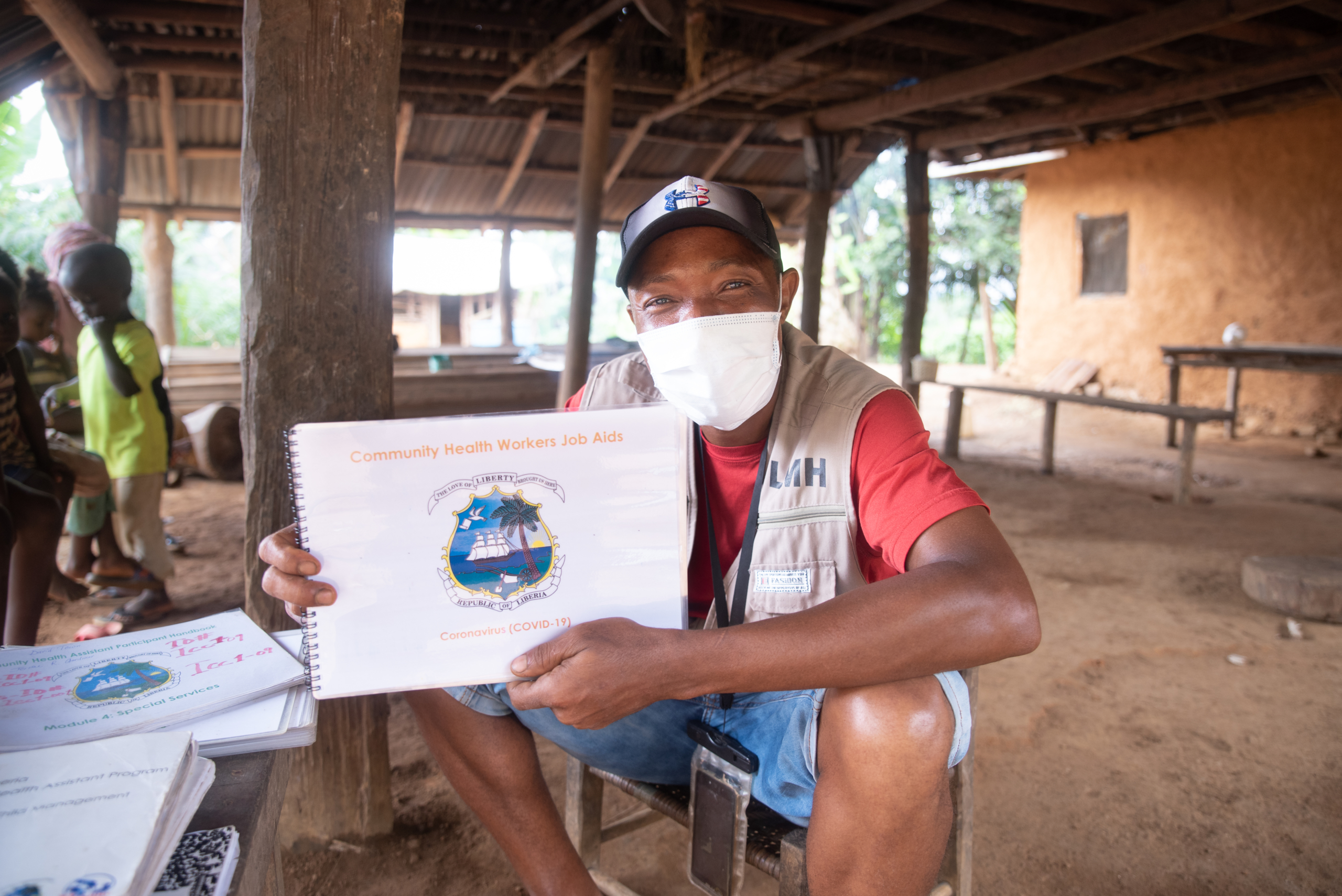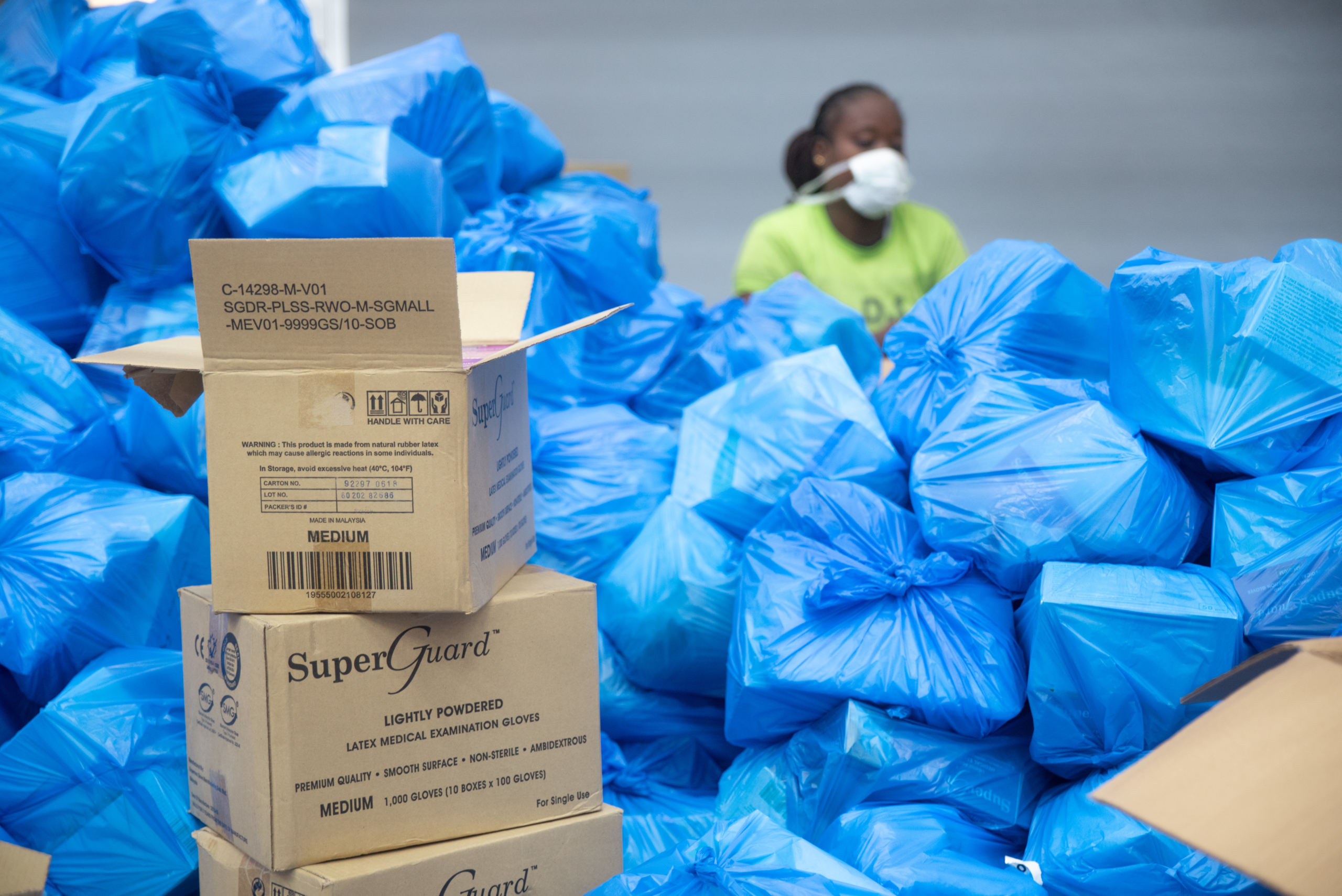COVID-19 Response
We are assisting governments and local partners to train and protect community and frontline health workers to safely prevent, detect, and respond to the coronavirus.
We are assisting governments and local partners to train and protect community and frontline health workers to safely prevent, detect, and respond to the coronavirus.
Community and frontline health workers play a critical role in responding to the pandemic. As trusted providers for their neighbors, community and frontline health workers can identify suspected cases, ensure proper treatment, and advance evidence-based response efforts such as masking and vaccination. Building on our country partnerships to improve community health programs, we have organized a comprehensive COVID-19 response around three primary objectives: ensuring the continuity of primary healthcare services for patients; limiting health worker infections; and eliminating transmission from known cases. These objectives also underpin our efforts to advocate for the importance of community health workers to pandemic response globally.

In Liberia and Malawi, we are working with Ministries of Health and local partners to ensure community and frontline health workers are a critical part of the country’s response efforts. This includes building on our long-standing work in Liberia, where all community health workers deployed nationally have been trained and supported to fight COVID-19 while continuing to provide essential health services. In counties where funding remained consistent, routine visits by Liberia’s community health workers have held steady during the pandemic.
We are also working to ensure community health workers receive access to COVID-19 vaccines. In the three counties where we directly manage Liberia’s National Community Health Assistant Program, 97% of community health workers have received a first dose of the COVID-19 vaccine and 88% have been fully vaccinated.

We are designing and implementing training and education resources with Ministries of Health for community and frontline health workers as a critical part of countries’ response efforts.
In Ethiopia, more than 7,200 health sector professionals have downloaded at least one of the eight courses available on the the COVID-19 Ethiopia Health Worker Training Platform, which we launched in partnership with Federal Ministry of Health and the Ethiopian Public Health Institute. As the Federal Ministry of Health’s first smartphone-based digital learning platform, the app is increasing health workers’ knowledge of and ability to identify and treat patients with COVID-19. In Uganda, 1,520 health sector professionals have downloaded at least one of four courses in the Ministry of Health Uganda Capacity Building App , which we launched with the Ministry of Health to equip the health workforce with tools to identify and treat COVID-19, as well as administer vaccines. And in Liberia, we designed and rolled out COVID-19 response training and educational videos for community and frontline health workers as part of the Ministry of Health’s pandemic response plan.
Alongside a coalition of partners, the Community Health Academy at Last Mile Health launched the COVID-19 Digital Classroom, which provides medically-reviewed multimedia training and education content for frontline health workers and local communities worldwide. And this content is now being adapted with our partners at the Sierra Leone Ministry of Health to be rolled out for frontline health workers across the country.

In Ethiopia, Uganda, and Sierra Leone, we seconded staff to the Ministries of Health to strengthen their national response efforts and contribute technical expertise. In Liberia, Uganda, and Malawi, we worked closely with Ministries of Health to advise on national response strategies and to procure and distribute personal protective equipment. This resulted in the delivery of 6.2 million pieces of personal protective equipment to community health workers, health facilities, hospitals, and partners across Liberia, Uganda, and Malawi.
Globally, we continue to advocate for investing in community and frontline health workers as part of resilient primary health systems that can withstand the shocks of crisis. We have advised global institutions, such as the World Health Organization, UNICEF, and Africa CDC, on the role of community health workers during the pandemic, and advocated alongside partners like the Community Health Impact Coalition to ensure community health workers are supported with personal protective equipment, training, and vaccinations.
The legacy of the COVID-19 pandemic can be health for all — but only if we invest in community and frontline health workers now.